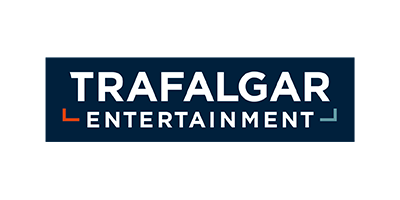Entry Requirements
No formal entry requirements
Qualifications
Level 3 Digital Marketer
Duration
This apprenticeship will typically last 17 months (including EPA).
The Level 3 Multi-Channel Marketer Apprenticeship will enable your organisation to ensure a proactive marketing approach, driving meaningful connections with customers and achieving measurable results that contribute to your long-term success.
Multi-Channel Marketer apprentices are trained in key areas such as:
- Creating and implementing integrated marketing campaigns that resonate with target audiences.
- Leveraging data analytics to assess campaign effectiveness and inform future marketing
strategies. - Creating compelling content tailored for diverse platforms, from social media to email
marketing. - Engaging customers through innovative outreach strategies that strengthen brand loyalty and
drive sales.
Multi-Channel Marketer apprentices are suitable for organisations such as:
- Event Management Companies
- Retailers
- Marketing Agencies
- Corporate Marketing Teams
- Nonprofits
Typical responsibilities for a Multi-Channel Marketer Apprentice could include but are not limited to:
- Campaign Planning & Development
- Content Creation
- Market Research
- Digital Marketing
- Analytics & Reporting
- Audience Engagement
- Collaboration with Teams
- Budget Management
- Creative Problem Solving
- Continuous Learning & Development
Entry Requirements
Knowledge, Skills and Behaviours
You will understand:
- The strategic implications of the disruptive digital environment.
- Natural/organic and paid marketing to increase the visibility and promotion of websites.
- The leading marketing theorists and practitioners when managing and implementing brand equity, brand awareness and strategic brand management.
- Professional bodies and their insights into emerging technologies, trends and themes within the digital marketing environment.
- Customer insight, strategic relationships, acquisition and focus of customers, taking into account the customer experience and retention/loyalty.
- How to foster business-to-business (B2B) marketing relationships through social media to launch products based on price and popularity.
- The types of online and offline paid, owned and earned media, and how this works together.
- Digital marketing regulatory requirements, data protection, compliance and ethics, both national and international.
- The Digital Marketing environment for International marketing and multichannel marketing, for agencies as well as clients.
- Stakeholder and customer requirements, commercial awareness and business improvement processes that are relevant to campaign management.
- Digital graphic design, interface design, and authoring.
- The user experience, and how to maximise engagement.
- Segmentation, targeting and application of sales funnel, path to purchase, and customer attribution.
- E-commerce and the importance of product descriptions, images, site layout and what makes a good online shopping experience.
- Develop and critically apply the concepts, principles and theories of marketing relevant to the interdisciplinary topics of digital marketing.
- Apply the 4 marketing principles (product, price, place, promotion) and considerations of the business/marketing campaign.
- Write and create content for the different audiences, online channels and create clear ‘Calls to Action’ and user journeys.
- Demonstrate how to promote and apply content marketing effectively through the appropriate media channels, relationship management systems and communication platforms to ensure brand and cultural awareness are maintained throughout marketing strategies.
- Select a variety of appropriate research methodologies, platforms and technologies to synthesise information and apply to the organisation’s digital marketing strategies, drivers and customer behaviours.
- Manage, plan, specify, lead and report on digital
marketing projects.
Manage and optimise key channels and content within a digital marketing plan. - Manage interfaces and the supply network of the organisation and customer by applying the appropriate E-commerce strategies and models available and whenever appropriate taking global engagements into account.
- Apply a marketing mix/digital marketing mix to meet customer expectations.
- Accurately observe, record and draw conclusions from all types statistical analysis of campaign performance, recognising inherent uncertainties and limitations with
financial and budgetary requirements to demonstrate Return on Investment (ROI). - Engage communities through email marketing and social media to stimulate and encourage communication through positive discussion and engagement.
- Apply the appropriate tools for a data-led approach to analyse marketing information and platforms, data and social media and recognise what is actually important for insights and optimisation to provide solutions for marketing decisions.
- Contribute to business, planning and marketing strategies to recognise and respond quickly to opportunities and customer requirements whilst embracing change.
- Identify, recognise and understand internal and external business intelligence and factors that may impact future operations.
- Interpret, communicate and brief internal or external stakeholders on digital business requirements.
- Ability to communicate and actively listen at all levels.
- Ability to work under pressure and unsupervised, and interact effectively within teams.
- Consider the impact of work on others, especially where related to culture, diversity and equality.
- Demonstrate business disciplines and compliance with procedures and principles to ensure work is of high quality and fit for purpose, with high attention to detail and the ability to work to deadlines.
- Show integrity and respect for confidentiality and data security in work and personal situations.
- Be enthusiastic and have a thorough and flexible approach to work and to personal development through CPD and lifelong learning.
- Logical thinking and a creative approach to problem solving to systematically analyse and apply structured techniques to complex systems and situations.
- Intro to digital marketing
- Understanding a marketing strategy
- Project management
- The customer
- Content creation & marketing
- Market research
- Policies & guidelines
- Marketing & communications
- Reporting
- UX / UI
- Professional development
- Developing a marketing strategy
Where do you see yourself?

Digital Marketing Assistant is a junior level role in which you will conduct market research, write content for your organisation’s social media accounts, and generally support the wider marketing team.
A Digital Marketing Executive is responsible for planning, development and implementation of an organisation’s digital marketing strategy. They may also train and manage junior roles.
A Digital Marketing Coordinator creates content, analyzes marketing trends, manages email marketing and creates analytics reports for websites, emails and campaigns.
As the name states, a Social Media Executive’s bread and butter is social media. Keep up with the latest trends and platforms, try out new post types and focus your efforts on engagement.
As it sounds, the Content Coordinator role is focused on creating engaging content for a wide range of platforms.
Email Marketing Assistants assist with an organisation’s email marketing using Email Marketing packages like Mailchimp. Write emails, build contact lists and analyse open rates and click through rates.
This role is all about Search Engine Optimisation, the art of getting your website to the top of the search results page. A key role in any organisation, expect an intricate and interesting career.






